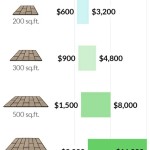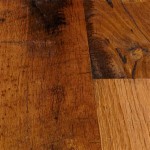Concrete Flooring Repair Near Me: Addressing Common Issues and Finding Reliable Services
Concrete flooring, prized for its durability and versatility, is a prevalent choice in both residential and commercial settings. However, despite its robust nature, concrete is susceptible to damage over time. Factors such as heavy foot traffic, environmental conditions, and improper installation can contribute to various issues, necessitating professional repair. Finding "Concrete Flooring Repair Near Me" is often the first step in addressing these problems. This article will explore common concrete flooring problems, discuss the importance of professional repairs, and outline key considerations when searching for local repair services.
Common Concrete Flooring Problems
Understanding the types of damage that can affect concrete flooring is crucial for identifying the appropriate repair strategy. Several common problems can arise, each requiring specific diagnostic and remediation techniques. Recognizing these issues early can prevent further deterioration and more extensive, costly repairs.
Cracks: Cracks are a frequent occurrence in concrete flooring, manifesting in various forms. Hairline cracks, often superficial, may not pose an immediate structural threat but can be aesthetically unappealing and can widen over time due to water intrusion and freeze-thaw cycles. Structural cracks, on the other hand, are deeper and wider, indicating a more serious underlying issue such as foundation settlement or excessive loading. These require immediate attention to prevent further damage and potential safety hazards. Shrinkage cracks occur during the curing process as the concrete loses moisture, and while common, they can still compromise the floor's integrity if left untreated. The repair approach for cracks varies depending on their size, type, and underlying cause. Epoxy injection is a common method for sealing and reinforcing cracks, while more extensive damage may require patching or complete replacement of the affected area.
Spalling: Spalling refers to the chipping or flaking of the concrete surface, often caused by water penetration followed by freezing and thawing. The expansion of ice within the concrete exerts pressure, leading to the disintegration of the surface layer. Spalling can also result from chemical exposure, such as de-icing salts or harsh cleaning agents. The severity of spalling can range from minor surface blemishes to deep, extensive damage that exposes the aggregate. Repairing spalling involves removing the loose and damaged concrete, cleaning the area, and applying a bonding agent followed by a concrete patching compound. For larger areas, resurfacing the entire floor may be necessary.
Dusting: Dusting is a phenomenon where the concrete surface produces a fine powder when subjected to abrasion. This is often caused by improper finishing techniques, such as adding water to the surface during troweling or using a concrete mix with insufficient cement content. Dusting can create an unsightly and unhealthy environment, as the dust can be easily inhaled. Addressing dusting typically involves applying a concrete hardener or sealant to the surface to improve its density and resistance to abrasion. In severe cases, grinding and polishing the floor may be required to remove the affected layer and create a smooth, durable surface.
Staining: Concrete flooring is porous and susceptible to staining from a variety of substances, including oil, grease, chemicals, and food spills. While some stains can be removed with cleaning agents, others may penetrate deeply into the concrete, becoming permanent. The type of stain and the duration it has been present influence the effectiveness of stain removal methods. Options range from using specialized concrete cleaners and degreasers to applying poultices that draw out the stain. In some cases, staining may require more extensive repairs, such as grinding and polishing the affected area or applying a stain-resistant coating.
Uneven Surfaces: Over time, concrete floors can become uneven due to settling, heaving, or improper installation. Uneven surfaces can pose tripping hazards and make it difficult to move furniture or equipment. Repairing uneven surfaces typically involves grinding down high spots and filling in low spots with a self-leveling concrete compound. This process creates a smooth, level surface that is safe and aesthetically pleasing. Proper preparation of the existing concrete is crucial for ensuring a strong bond between the leveling compound and the substrate.
Efflorescence: Efflorescence is a white, powdery deposit that appears on the surface of concrete, caused by the migration of soluble salts from within the concrete to the surface. As water evaporates, it leaves behind these salts, creating the characteristic white discoloration. Efflorescence is generally harmless but can be unsightly. Removing efflorescence involves cleaning the affected area with a mild acid solution or a specialized efflorescence remover. Preventing future efflorescence requires addressing the source of moisture that is allowing the salts to migrate to the surface.
The Importance of Professional Concrete Flooring Repair
While some minor concrete repairs can be handled as DIY projects, most issues, especially those involving structural damage or extensive surface deterioration, require the expertise of a professional. Attempting to repair concrete flooring without the necessary knowledge, tools, and experience can lead to further damage and more costly repairs in the long run. Professional concrete flooring repair services offer several key advantages.
Accurate Diagnosis: Experienced concrete flooring repair professionals possess the knowledge and skills to accurately diagnose the underlying cause of the problem. This is crucial for selecting the appropriate repair method and preventing recurrence. For example, identifying the source of moisture intrusion is essential for preventing future spalling or efflorescence. A professional assessment can also reveal hidden damage that may not be readily apparent to the untrained eye.
Proper Repair Techniques: Concrete repair requires specialized techniques and materials to ensure a durable and long-lasting result. Professionals are trained in the proper methods for crack repair, spalling repair, surface leveling, and other concrete restoration techniques. They also have access to high-quality materials and equipment that are not typically available to homeowners or general contractors. Using the correct techniques and materials is essential for achieving a seamless and structurally sound repair.
Safety Considerations: Concrete repair can involve working with heavy equipment, power tools, and potentially hazardous materials. Professionals are trained in safety procedures and use appropriate personal protective equipment (PPE) to minimize the risk of accidents and injuries. They also understand the importance of proper ventilation and dust control to protect the health of workers and occupants. Attempting to perform concrete repairs without proper safety precautions can lead to serious injuries or health problems.
Long-Term Solutions: A professional concrete flooring repair service aims to provide long-term solutions that address the root cause of the problem, rather than simply masking the symptoms. This may involve addressing drainage issues, reinforcing the concrete structure, or applying protective coatings to prevent future damage. By focusing on long-term solutions, professionals can help extend the life of the concrete floor and minimize the need for future repairs. This proactive approach can save homeowners and business owners significant money over time.
Warranty and Insurance: Reputable concrete flooring repair companies typically offer warranties on their workmanship and materials, providing peace of mind and protection against future problems. They also carry liability insurance to cover any damage or injuries that may occur during the repair process. Hiring a professional contractor with warranty and insurance coverage offers added protection and assurance of quality workmanship.
Key Considerations When Searching for Local Concrete Flooring Repair Services
Finding reliable "Concrete Flooring Repair Near Me" requires careful consideration. Here are several key factors to evaluate when selecting a local concrete flooring repair service.
Experience and Expertise: Look for a company with a proven track record of successfully repairing concrete floors in your area. Inquire about their experience with similar types of damage and the specific repair techniques they employ. Check online reviews and ask for references to gauge their reputation and customer satisfaction. Companies with extensive experience and specialized expertise are more likely to provide high-quality workmanship and reliable results.
Licensing and Insurance: Ensure that the company is properly licensed and insured to operate in your state or local area. Licensing demonstrates that the company meets certain standards of competence and professionalism. Insurance protects you from liability in case of accidents or damage during the repair process. Verify the company's license and insurance information with the relevant authorities.
Reputation and Reviews: Online reviews and testimonials can provide valuable insights into the company's reputation and customer service. Check websites like Google, Yelp, and the Better Business Bureau to see what other customers have to say about their experiences. Pay attention to both positive and negative reviews and consider the overall pattern of feedback. A company with consistently positive reviews is more likely to provide satisfactory service.
Scope of Services: Determine the range of services offered by the company. Some companies specialize in specific types of concrete repairs, such as crack repair or spalling repair, while others offer a more comprehensive range of services. Choose a company that can address all of your concrete flooring needs, including diagnosis, repair, and preventative maintenance. A full-service company can provide a more holistic approach to concrete flooring care.
Pricing and Estimates: Obtain detailed estimates from several different companies before making a decision. Compare the prices, materials, and techniques proposed by each company. Be wary of estimates that seem too good to be true, as they may indicate substandard workmanship or hidden costs. A reputable company will provide a clear and transparent estimate that outlines all aspects of the repair process and the associated costs. Ensure the estimate includes details about the materials being used, the labor costs, and any applicable permits or fees.
Communication and Customer Service: Assess the company's communication skills and customer service. Are they responsive to your inquiries? Do they explain the repair process clearly and answer your questions thoroughly? A company that provides excellent communication and customer service is more likely to be reliable and trustworthy. Clear and consistent communication is essential for a smooth and successful concrete flooring repair project.
By carefully considering these factors, you can increase your chances of finding a reputable and reliable concrete flooring repair service near you that can effectively address your needs and restore your concrete floor to its original condition.

Concrete Floor Repair Patching Titus Restoration

Floor Patch Resurfacing Repair S Questmark

Repairing Common Concrete Slab Problems Network

Cost Effective Concrete Repair Solutions Available Now

Common Issues In Concrete To Repair Kwikbond

Top Basement Floor Repair In Pasadena Tx Stop S Settling Fast

Garage Floor Repair In Clear Lake City Tx Concrete And Leveling

Concrete Floor Repair Polished Floors Llc

Concrete Repair San Jose Ca Ing Chipping Flaking

Concrete Flooring Repair Polished Micro Topping In Miami
Related Posts








